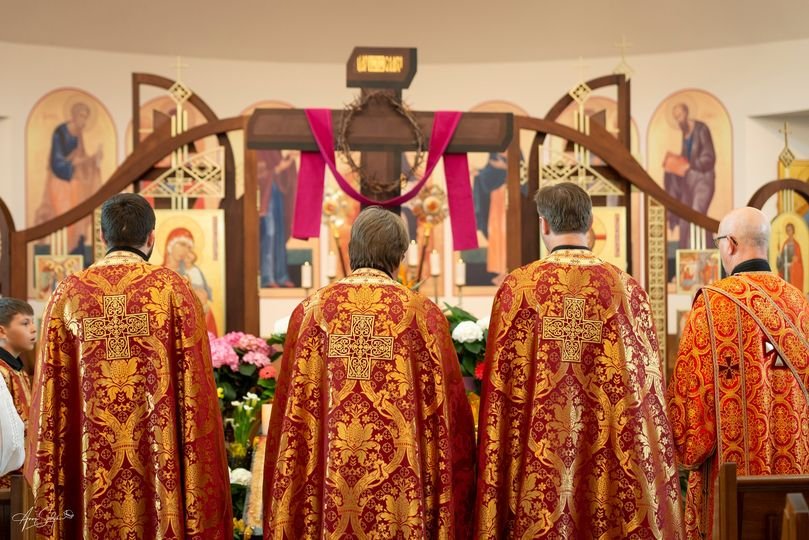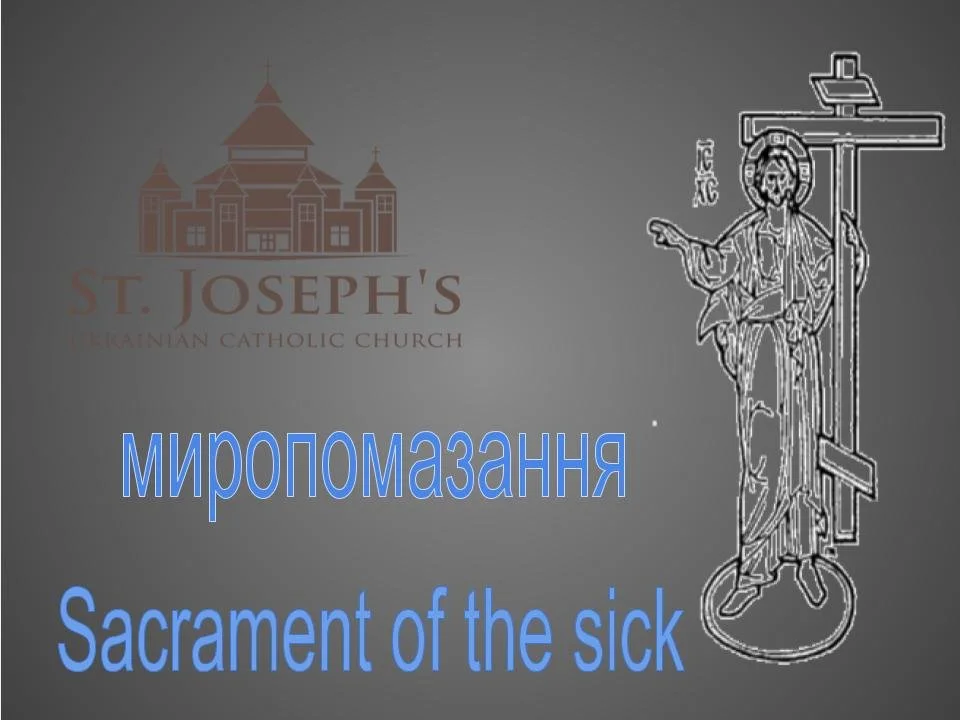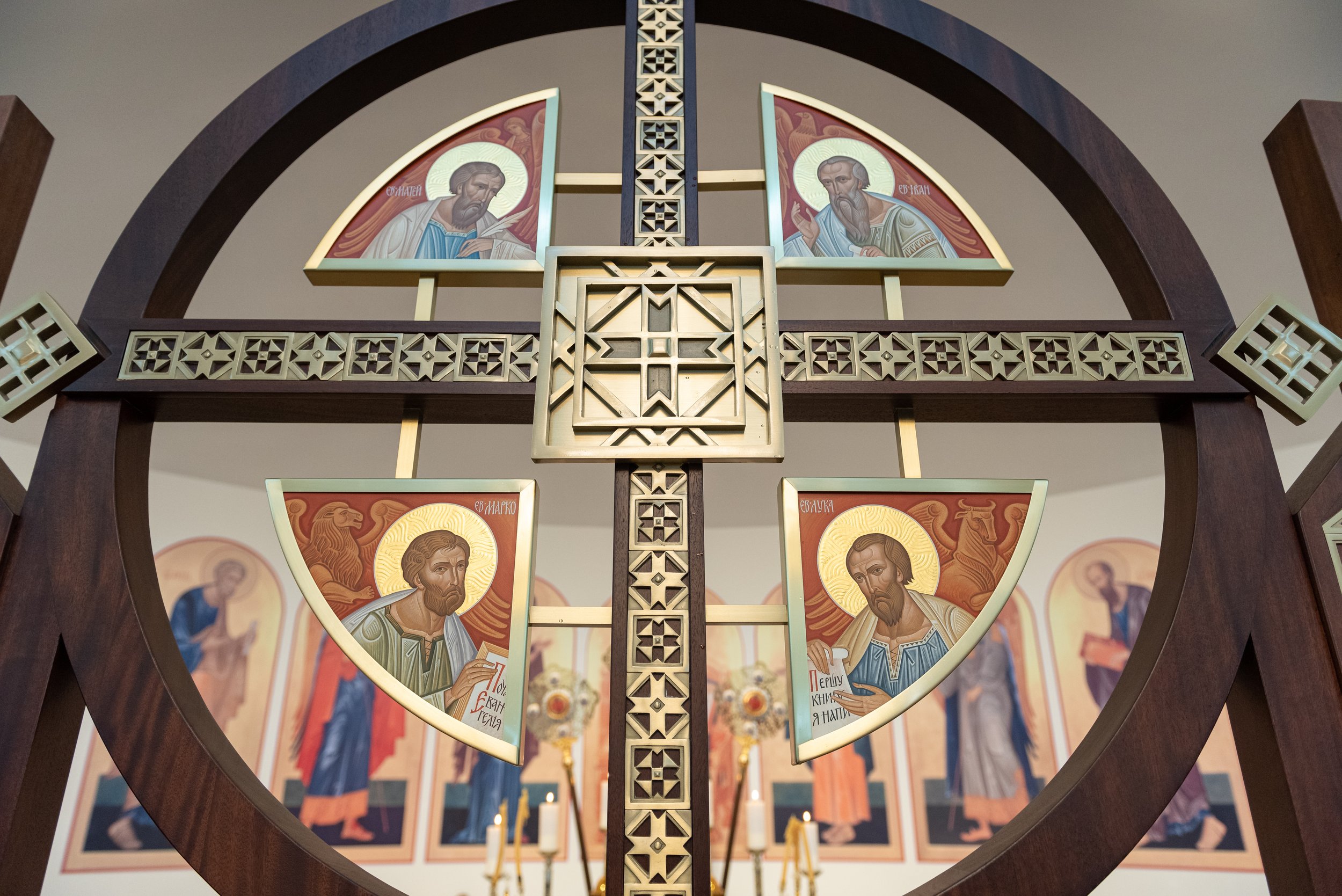
Annointing of the Sick
(Sometimes referred to as “Last Rites”)
Sacraments
The sacrament of the sick or “Ieleopomazannia” (an anointing with holy oil) is recommended for any baptized person who is seriously ill. This ritual invites God to bless the individual and return them to good health, should this be God’s will. You should not hesitate to call a priest at any hour. The hospital chaplain will make arrangements for another priest (Ukrainian or Roman Catholic) should you not be able to contact your own pastor. The sacrament may still be administered for a short time after someone has passed away.
-
Any of the area funeral home will arrange all details pertaining to the funeral, including cemetery arrangements, newspaper announcements, icon cards, etc.
-
The Ukrainian-rite funeral typically consists of four elements:
A Prayer Service (“panachyda”) is conducted on the eve of the funeral, usually at the funeral home. This event provides a suitable opportunity for relatives and friends to visit the family and express their condolences.
Funeral (“pochoron”) is conducted at church (funeral services for non-parishioners may be held at the funeral home.)
Burial (or interment) takes place at the cemetery within the context of a “panachyda” service.
Memorial Luncheon (“tryzna”) is a solemn and appropriate conclusion to a funeral. It provides one final opportunity for the community to gather and share grief, encouragement and nourishment.
-
There are basically 2 options depending on time and family preferences:
Funeral Service (“Parastas”) with the Divine Liturgy (1.5 hrs)
Funeral Service (“Parastas”) (30 m. to 1 hr.)Notes:
1. The services may be held in Ukrainian or English, or a combination of both languages.
2. Father will arrange cantors to lead the singing.
3. Let father know should you wish to invite another priest to participate in the services.
-
Following the burial the family usually invites all those who have participated in the funeral services to stay for a memorial luncheon. The family may ask a friend or family member to act as emcee. The program may include an opening prayer, word of welcome, lunch, introduction of the immediate family and out of town guests, a slideshow, condolences from community organizations and individuals, a closing prayer.
-
The following is a list of ideas to make the funeral experience a meaningful and memorable celebration of one’s life:
*prepare a collage of photographs to display at the funeral home
*things in the coffin that could be symbolic of different parts of their life (e.g. letters or drawings from their children or grandchildren, medals or association pins, samples of hobbies or interests, religious symbols)
*someone from the family read the epistle for the church service
*the priest with some details (written notes) of his/her life to incorporate into the homily
*a family member prepare a brief tribute at the memorial luncheon
-
Your family and friends will wish to express their love in a variety of ways: some will send flowers, others will travel from afar, still others will arrange for prayers to be said in their own parishes. Some will also wish to make a donation to a charity of the family’s choice. In this case consider causes, which are important for your family. We also invite you to consider our own St. Joseph’s Mortgage Fund.
Special Notes
People often feel uneasy when confronted with death. Some may feel inept to say anything. Please be understanding of these awkward moments and know that a handshake, an (embrace or ) a simple “Thank you for coming” may be the most appropriate response. Children require special attention when dealing with death. Some parents may choose not to involve their children in funerals. We do however encourage families to engage children in appropriate conversations about death. Any of your parish priests will be happy to assist with ideas in helping children discuss and grieve the death of a loved one
Personal Care
Dealing with death has always been one of life’s most difficult and painful realities. The process of coping with grief is complex and long-term. It is important that individuals, both children and adults, who have been directly affected by the loss of a loved family member, seek out opportunities and people to help them journey through grief.
“Even though I walk through the valley of the shadow of death, I will fear no evil, for you are with me.”
(Psalm 23:4)
May the Good Lord, who has called us to life and who will one day call us home, bring you peace and consolation in your time of sadness.



